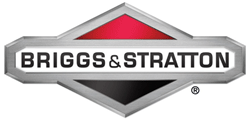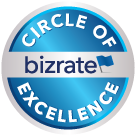Make sure you haven't got the discount earlier.
Appliance Parts
- Accessories
- Dishwasher
- Dryer
- Stove / Oven
- Microwave
- Refrigerator
- Washer
- See more... See less...
Lawn Equipment Parts
- Lawn Mower
- Chainsaw
- Blower
- Generator
- Air Compressor
- Lawn Tractor
- Pressure Washer
- See more... See less...
Books vs. Cell Phones: Where to Find Children's Reading Resources
Compared to a few decades ago, research has shown that children today are investing far more time texting and surfing the Internet on their cell phones for information rather than turning to traditional sources such as: books, magazines or newspapers. Considering that around seventy-five percent of teens own cell phones, according to the Pew Internet and American Life Project, it is natural for them to use it as a source of information. While it is commendable that children satisfy their curiosity by looking up information, the fact remains that at that age, many have not yet learnt to distinguish between reliable and untrustworthy sources. Helping children to develop good reading habits goes a long way in teaching them how to become better readers, improve their writing styles and research more discriminately. More importantly, a study by the Nevada University shows that children raised with good reading habits tend to stay in school on average three years more than their non-book-loving peers.
Reading Resources for Kids
- Stories for Toddlers: A list of links to free childen’s stories that can be read online or printed.
- Hans Christian Anderson Tales: A printable chronological list of classic children’s fairytales with illustrations by Hans Christian Anderson.
- Online Illustrated Stories: A bank of online children’s stories as well as fun interactive reading games such as Adlib.
- Guys Read: A literacy program geared towards young boys, created by the award-winning children’s author, Jon Sciezka.
- Kids Bookshelf: A site that provides book reviews, links and a newsletter for children. It also publishes stories and poems written by children.
- Children’s Choices: An annual reading list reviewed and judged only by children and for children. Age categories range from K2 to Grade 6.
- Teen Reads: A website for teens, featuring plenty of book reviews, reading suggestions and lists, book clubs, film adaptations, discussion forums and much more.
- NYPL Resources for Teens: The New York Public Library’s guide for teens with links to reading events, podcasts, discussion groups, exhibits and reading lists.
- All America Reads: A national reading program aimed at promoting reading among secondary school students. Featured book suggestions include a synopsis, reading strategies, related activities to further understanding of the subject, lesson plans and more.
- America Reads: An archived site of a four-year national program focused on encouraging children to read. The site also contains helpful information for parents and teachers.
- International Children’s Digital Library: A group that aims to encourage multi-cultural tolerance and education by promoting children’s books from around the world.
- Children’s Book Council: A non-profit organization promoting youth reading and literacy. The site features numerous reviews of new books as well as information on Children’s Book Week.
- Reading Rockets: A national program with numerous PBS educational features specifically for teaching children to read, especially those with reading and comprehension difficulties.
- Teach Kids to Read: A valuable list of activities, publications and tips to show parents how to encourage their kids to read.
- Reading Resources for Parents: A hub of articles and resources to help parents develop reading habits in children of different age groups.
- Issues with Reading: An article on the difficulties of keeping children interested in reading and how to overcome them.
- Reading is Fundamental: A non-profit organization that delivers free books and reading resources to American families who cannot afford them.
- Learning to Use the Library: A multi-page guide on how to teach children to use the library as well as the various services offered by libraries.
- Resources to Encourage Reading: A list of resources for teachers and parents, including teaching phonics, reading comprehension and reading activities.
- Reach Out and Read: A non-profit organization that promotes reading by providing books to children in pediatric clinics, as well as youth literacy resources to their parents.
- Developing Reading and Language: A site for parents on how to develop a young reader from birth.
- Reading for Dyslexic Children: Helpful resources on how to teach dyslexic children to read.
- Read Across America: An awareness program by the National Education Association which provides information on reading events, activities and other resources for parents, as well as features for kids such as Celebrity Reading videos by Justin Bieber and Michelle Obama.
- Disney’s “Reading Together”: The Walt Disney Company runs a program to encourage and teach parents how to read with their children.
- Family Reading Partnership: National non-profit group that offers several programs, events and downloadable articles to help parents understand how to encourage reading among children.
- Under The Roof Reading Begins: An organization that aims to improve life quality by supplying books and reading resources to children from impoverished families.
- The Horn Book: A premiere print journal for parents celebrating the top children’s literature today. The website also includes a newsletter and educational resources.
- Best Ways to Teach Kids to Read: A multi-page article on how to hook kids into reading and continue the habit through the years.
- Tips to Help Children Read: A few simple suggestions of how parents can make reading interesting for their children.
- Raising A Book Lover: An insightful article on encouraging good reading habits, with several recommended book lists (sorted by age group) at the end.
- How to Develop Reading Habits: Advice for parents teaching children to read, especially if English is not the child’s first language.
- Library of Congress Reading Resources: Children and teen reading resources sorted by specific topics such as sports, American inventors, and Civil War.
- Teach the Love of Reading: A teacher shares the secrets of how she made her students love reading.
- Read Aloud Resources: A list of book suggestions sorted by function: phonemic awareness, vocabulary and comprehension.
- Search your model number to find:
- Genuine OEM parts guaranteed to fit
- Free manuals and guides
- Repair instructions and videos


































